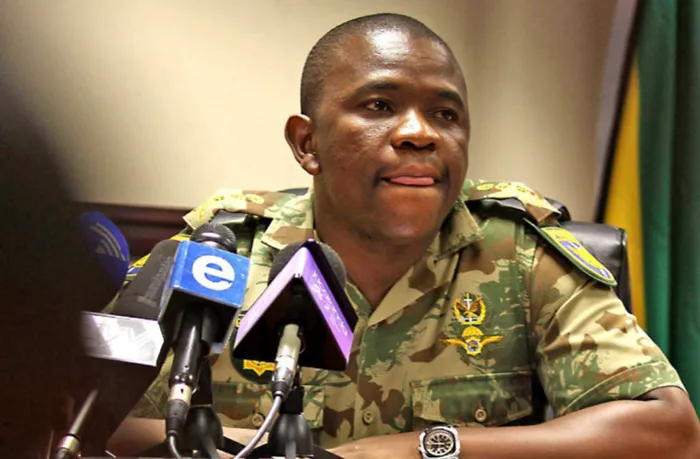South Africa’s Security Cluster Warns of Coup Risk Amid Police Minister Scandal
POLICE CHAOS

Police Commissioner Lieutenant‑General Nhlanhla Mkhwanazi publicly accused Police Minister Senzo Mchunu of colluding with organised crime, interfering in investigations, and shielding corrupt syndicates
Image: Thobile Mathonsi
In an admission on July 15, Khumbudzo Ntshavheni, Minister in the Presidency responsible for State Security, revealed during her department’s budget vote in Parliament that the government has identified a potential risk of an attempted coup d’état in South Africa. She confirmed that the “security cluster” which includes the State Security Agency and law enforcement agencies is actively monitoring and has put measures in place to mitigate the threat
This disclosure follows mounting political turmoil after KwaZulu‑Natal Police Commissioner Lieutenant‑General Nhlanhla Mkhwanazi publicly accused Police Minister Senzo Mchunu of colluding with organised crime, interfering in investigations, and shielding corrupt syndicates. Mkhwanazi’s allegations include claims that Mchunu ordered the disbandment of a task team investigating political killings and authorised the withdrawal of more than 120 case files, allegedly protecting politicians and a controversial businessman linked to drug cartels.
In response, President Cyril Ramaphosa placed Mchunu on immediate leave of absence on July 13 and announced a judicial commission of inquiry to investigate whether senior officials in law enforcement, intelligence, and judicial structures have been infiltrated by criminal networks. Law Professor Firoz Cachalia has been appointed as acting Police Minister, signaling Ramaphosa’s commitment to swift action.
What Mkhwanazi said
At a press conference on July 6, Mkhwanazi offered detailed evidence, including recorded WhatsApp messages, that he said proved Mchunu received payments from implicated business interests and ordered the disbandment of the Political Killings Task Team in KwaZulu‑Natal. He asserted the unit had uncovered a syndicate involving politicians, police, prosecutors, business figures, and drug cartels.
Mkhwanazi warned that these developments “undermine our criminal justice system” and pledged to pursue his investigation to the end.
Mchunu has categorically denied these allegations, calling them “baseless” and insisting on the rule of law. Despite denial, the outcry has been swift and intense.
Public outcry: Leave, not firing
Opposition parties and civil society groups have condemned Ramaphosa’s decision to place Mchunu on leave rather than dismiss him outright. The Democratic Alliance, Economic Freedom Fighters, MK Party, and others have demanded immediate suspension and arrest, arguing that leave of absence is insufficient given the severity of the accusations
Critics describe the move as a political compromise: ActionSA called it a “paid holiday” while others warned that a leave-of-absence fails to restore public trust amid widespread violence . Civil society marches—branded with hashtags such as #HandsOffMkhwanazi—have swept through Gauteng and Durban, reflecting popular concern over political interference in policing
Security cluster on alert
Ntshavheni defended the government’s readiness, stating clearly: “There has not been anyone attempting to do a coup in South Africa” but emphasising vigilant monitoring She noted that protests in support of Mkhwanazi contributed to instability concerns, but assured Parliament that existing safeguards are adequate
She confirmed that Sibiya, the Deputy National Commissioner for Crime Detection, has also been placed on “special leave” while Masemola, National Police Commissioner, investigates Ntshavheni reiterated the government’s top priority is national security and pledged “solid” coordination across intelligence and enforcement agencies